Lupita Reminds Us Who Could’ve Played Nina
People are sitting around here wondering why they couldn’t find anyone to play Nina Simone, and Lupita Nyong’o was up at the Met Gala, like… I got this Nina.
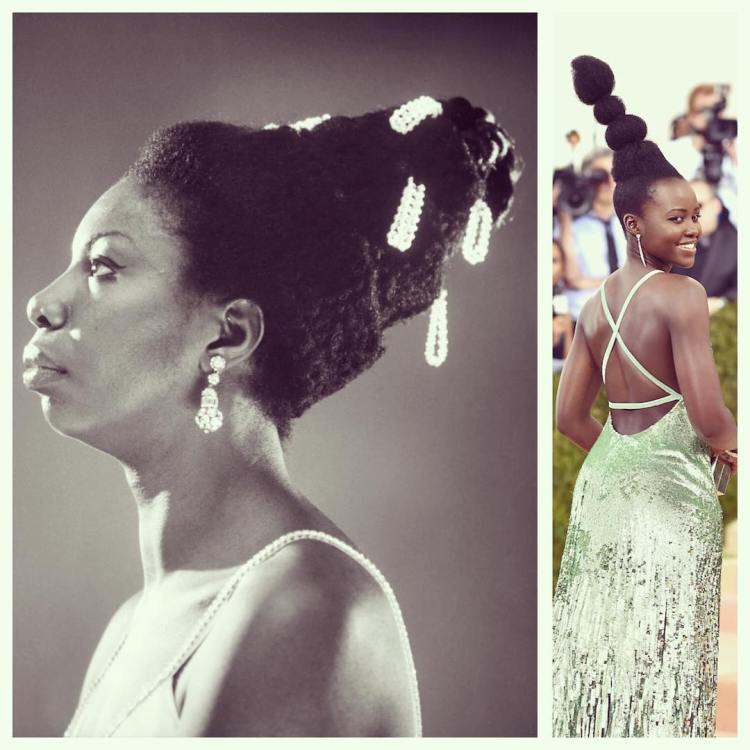
Critical Thoughts; Real Talk
Writing that honors the (mostly) women whose shoulders I am standing on, as I attempt engage in critical discussion around race
People are sitting around here wondering why they couldn’t find anyone to play Nina Simone, and Lupita Nyong’o was up at the Met Gala, like… I got this Nina.

With this being a blog about race, one may think that I’m late on responding to the perpetual violence that has been projected onto Black people most recently. I’ve been silent to the many lives that have been lost/ assaulted since Michael Brown. My silence isn’t due to lack of care, but the absolute opposite. While I can deal with anger or frustration through scathing phrases, sadness is a private emotion I can articulate only once I’ve processed it. Currently, it’s difficult to discuss whats been going on with loved ones, let alone a blog. We’re all hurting, but, again, words aren’t medicinal enough to carry our pain. My best mode for healing, so far, has been to read other people’s words. To read the words of people who experienced/ fought against/ survived more difficult, yet similar, situations.
“To be a Negro in this country is really– Ralph Ellison has said it very well– never to be looked at. What white people see when they look at you is not visible. What they do see when they do look at you is what they have invested you with. What they have invested you with is all the agony, and pain, and the danger, and the passion, and the torment– you know sin, death, and hell– of which everyone in this country is terrified.” — James Baldwin, from an interview by Stud Terkel in 1961
Baldwin’s words are heavy, but boldly relevant. His usage of “white people” simply equates to American society, for me. And the death that he says gets projected onto Black people… onto people of color… is sadly, too relevant 54 years later. We are only visible when we are seen as a threat. And then, there are deathly repercussions for our visibility.
I’ve attempted to provide words for the pain I’m feeling for young adults in Ferguson, for the suburban kids in Texas, for praying churchgoers in Charlotte, for the communities that are mourning… but sometimes we simply need silence…silence from the noise of recounting the violence, silence from nonsensical opinions of why things aren’t as bad as they seem, silence so that we can hear the voice within each of us that will tell us how to pick up the pieces.
On my Instagram page, I’m counting down to Sunday’s premiere of Mad Men by posting images reflecting 1969 (the first part of the series finale ended in the summer of ’69). What an appropriate treat it was to discover that Cesar Chavez graced the cover of Time Magazine that same year! Happy Birthday Cesar Chavez!

Happy Birthday Langston!
My students and I will read some of your words tomorrow. They love you and can relate to you.They memorize you without me instructing them to do so. Maybe, it’s because you affirm their voices and their beauty.
The night is beautiful,
So the faces of my people.The stars are beautiful,
So the eyes of my people.Beautiful, also, is the sun.
Beautiful, also, are the souls of my people.
This is why I love you and your words, your legacy and your spirit.

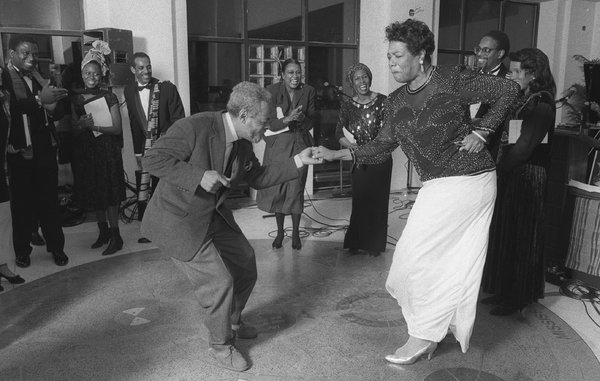
I feel my process of aging most when someone I love and admire passes. On January 9th of this year, we lost ethnomusicologist/poet/activist, Amiri Baraka. Earlier this week, on May 28, 2014, we lost poet/activist/spiritual mother-of-many, Maya Angelou.
There are people whose power is so great, we think they will conquer death. That is, until they die, reminding us of the mortality of everything and everyone around us. Fortunately for us, both Amiri Baraka and Maya Angelou left us their words to hold and to pass down to generations who will only know them as thinkers from before. While their bodies are no longer here, their words remind of us of their power. For that, we are so lucky.
Today, marks, what would have been, Billie Holiday’s 99th birthday. Most who know me, know that I consider Lady Day to be one of my main auntcestors. I imagine she’s looking out for me daily, applauding me when I make my fiercest decisions, and encouraging me to speak my mind when I doubt myself. Her voice was introduced to me as a child by an older neighbor, Miss Madeline. Miss Madeline also happened to look a lot like Billie Holiday in her youth, and enjoyed sharing tales of having an affair with Billie Holiday’s ex-husband.
While there are many other titillating stories connected to Lady Day, her sexuality, and her addiction to the white stuff, I’ve always been obsessed with Holiday’s voice and the work she did for Black people. I’ve felt so connected with Billie Holiday’s story that I spent a year and a half of grad school researching Holiday’s career in music and activism. My Master’s thesis was called, “Is This Mic On?: Reclaiming Billie Holiday and Nina Simone,” and my project worked to uncover the multiple ways that both Nina Simone and Billie Holiday paved the way for and supported the Civil Rights Movement. Both of these women risked their careers and lives for the movement, but are rarely honored as the activists they were. I plan to spend some more time on my blog to extrapolate on this statement, but for now, I would like to honor Billie Holiday’s birthday by sharing the poem that opens my thesis chapter on Lady Day, “Lady Sings More then the Blues; She Sings Revolution.”
“Willow Weep for Me”
She haunts me
Willow weep for me
She haunts us
Willow…
Her voice stops
When their pen begins
Describing
Transcribing
A tragedy of another buxom
Black Lady/girl singer
Whose voice gets silenced
By the ruckus of ‘others’ addiction
To trope-laden fairytales
Where White is right
And she is just a Lady of the Night
Having love affairs with abusive men
Covered in white powder poison–
Unable to save herself
Unable to save the voice They love(d) so much
Willow weep for me
Hear that?
Willow weep for me
Juslisen
Willow…
She speaks to me (to us)
Haunting modern-day ‘fans’ with a story left untold
Though always playing
Over the clicking of forks and credit card receipts
Screaming, through silence, to reclaim her voice
From those who muffled it
With their Blues Lady/girl storytale
Listen to my plea
She has something to say
Hear Me Willow
I’m listening, Ms. Lady Day
Lady Day once sang the Blues
Lady Day once lived Revolution
But memories of those days have been lost
Behind the shuffle of Diana Ross’
acting debut
Behind Holiday students’ and supposed friends’
desire for 15 minutes of fame
while playing pretend
of ‘truth’ seekers
‘truth’ tellers
Weep!
I’ve wept, Ms. Day
For Me
For you, Ms. Day
And through those tears
And through your plea
I’ve tried to scribble down these notes
You’ve left for me (for us)
Notes of skill, of resistance, of courage,
Of will, of persistence, of Mastery
A story called:
Lady Sings More than the Blues: She Sings Revolution.
When I age into future decades, and look back to my 20s, Nina Simone will sing the soundtrack. Aside from dedicating a year and a half to researching how she helped move the Civil Rights Movement with her music and her actions, Nina Simone helped politicize me. She brought me into my blackness in a way that no other theorist, or musician did.
Here is one of my favorite clips of Nina Simone. She is fly to the bone with her iconic hairstyle, anthropologie-b4-anthropologie dress, and out-a-sight earrings, all while singing, “Ain’t Got No… I’ve Got Life.”
Happy Birthday High Priestess of Soul!!!!
This year has been a year for invigorating reading. Books, ranging from topics like Black men and the prison industrial complex, women and writing, Roaring 20s fiction, contemporary fiction, Toni Morrison (she deserves her own category), and meditations written by my favorite author, made their way to bedtime and me-time rituals. When deciding my favorite books of the year, I selected ones that I’ve thought about the most since reading their offerings. The books whose passages make their way into conversations with friends and students, whose teachings inspire me to be more thoughtful, radical, or more brave. The books that have grounded me, and reminded me why I am who I am, why I am doing what I am doing, or need to change how I am doing things. While I read some books that didn’t directly address race, I find it to be of no surprise that this year’s favorite books all incorporate dialogue around race.
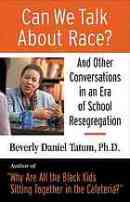
Can We Talk About Race: And Other Conversations in an Era of School Resegregation by Dr. Beverly Daniel Tatum shifted my thinking around my role in education. The fact the she simply wrote the book reminds us the necessity to write and talk about race as educators, as well as the importance to talk about race with our students. I think all educators—regardless of the demographics of your students—should read this book, along with other works engaging in conversations around race and education.
The most important idea from this book is Tatum’s ABC’s for creating inclusive learning environments: “environments that acknowledge the continuing significance of race and racial identity in ways that can empower and motivate students to transcend the legacy of racism in our society even when the composition of our classrooms continues to reflect it. What do I mean by the ABC’s? I mean, A, affirming identity; B, building community; and C, cultivating leadership.” Read the quick, but important 130 page book to read her explanation of the ABC’s.
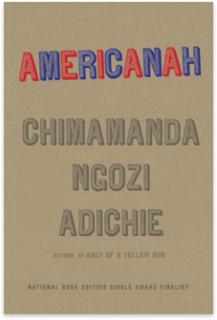
The only fiction book to make it to my top 3, and the only author to make it into a Beyonce song, Americanah is a novel by Chimamanda Ngozi Adiche that speaks to race, love, nationality, and familial relationships. The protagonist, Ifemelu, is a Nigerian woman who goes to America to study. Upon moving to the U.S., she not only finds herself having to adjust to American ways of living, but she also has to figure out how to navigate American race politics. She copes with her new relationship to racial politics on her personal blog. In the backdrop is the story of how she balances her Nigerian identity in America, while still feeling connected to Nigeria, and the peoples she’s left behind.
One of my favorite scenes is when Ifemelu is at a dinner party in Manhattan the day after Barack Obama becomes the Democratic Party Candidate for President. Liberalism is in the air, and there’s talk of living in a post-racist society. A black woman says she dated a white man in California, and race was never an issue. Ifemula, who has had her share of wine and white boyfriends calls nonsense, and says:
“‘The only reason you say that race was not an issue is because you wish it was not. We all wish it was not. But it’s a lie. I came from a country where race was not an issue; I did not think of myself as black and I only became black when I came to America. When you are black in American and you fall in love with a white person, race doesn’t matter when you’re alone together because its just you and your love. But the minute you step outside, race matters. But we don’t talk about it. We don’t even tell our white partners the small things that piss us off and the things we wish they understood better, because we’re worried they’ll say we’re overreacting, or we’re being too sensitive. And we don’t want them to say, Look how far we’ve come, just forty years ago it would have been illegal for us to even be a couple blah blah blah, because you know what we’re thinking when they say that? We’re thinking why the fuck should it ever have been illegal anyway? But we don’t say any of this stuff. We let it pile up inside our heads and when we come to nice liberal dinners like this, we say that race doesn’t matter because that’s what we’re supposed to say, to keep our nice liberal friends comfortable. It’s true. I speak from experience.’
The host, a Frenchwoman, glanced at her American husband, a slyly pleased smile on her face; the most unforgettable dinner parties happen when guests said unexpected, and potentially offensive, things.”
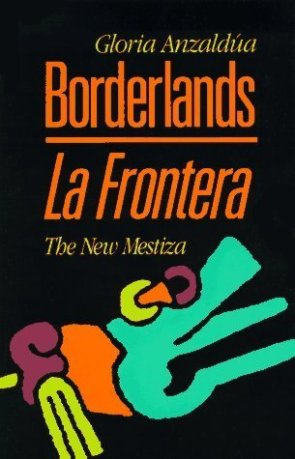
Borderlands by Gloria Anzaldua
I’ve already posted some of favorite quotes from Gloria Anzaldua’s Borderlands in a previous post, and I see no harm in reposting another one from my favorite book of 2013. Reading Borderlands was like coming home for me. In a book that legitimizes the complexities of being multilingual, multicultural, multispiritual, she writes as a whole person. She refuses to compartmentalize her multilayered self, despite having lived in a society that struggles living outside binary clauses. We are told you’re either this or that, but Gloria says she is all the above, plus more; she is mestiza, and she is whole.
“The new mestiza copes by developing a tolerance for contradictions, a tolerance for ambiguity. She learns to be an Indian in Mexican culture, to be Mexican from an Anglo point of view. She learns to juggle cultures. She has a plural personality, she operates in a pluralistic mode—nothing is thrust out, the good, the bad, and the ugly, nothing rejected, nothing abandoned. Not only does she sustain contradictions, she returns the ambivalence into something else.”
I am mestiza. I am Black, Finnish, East Indian, Scottish. I am whole. I am all the above. I am not other. I am mestiza. I am a believer of God, the earth, the womb, the sky, the water, the ancestors and spirits. I am whole. I am all the above. I am not other. I am mestiza. I am daughter, wife, teacher, friend, writer, student, auntie, sister. I am whole. I am all the above. I am mestiza. I am whole. I am not other. I have never been with a woman. I love women. I am in love with a man. I am not straight. I am not gay. I am not bisexual. I am whole. I am all the above. I am not other. I am mestiza.
** Choosing only 3 books for 2013 was not easy. Some books that would have made the list, had I done my top 5 or 10, are Dreams of My Father by President Barack Obama, Women and Writing by Virginia Woolf, My Foreign Cities by Elizabeth Scarboro, Sister Citizen: Shame, Stereotypes, and Black Women in America by Melissa Harris Perry, The Cushion in the Road: Meditation and Wandering As the Whole World Awakens to Being in Harm’s Way by Alice Walker.